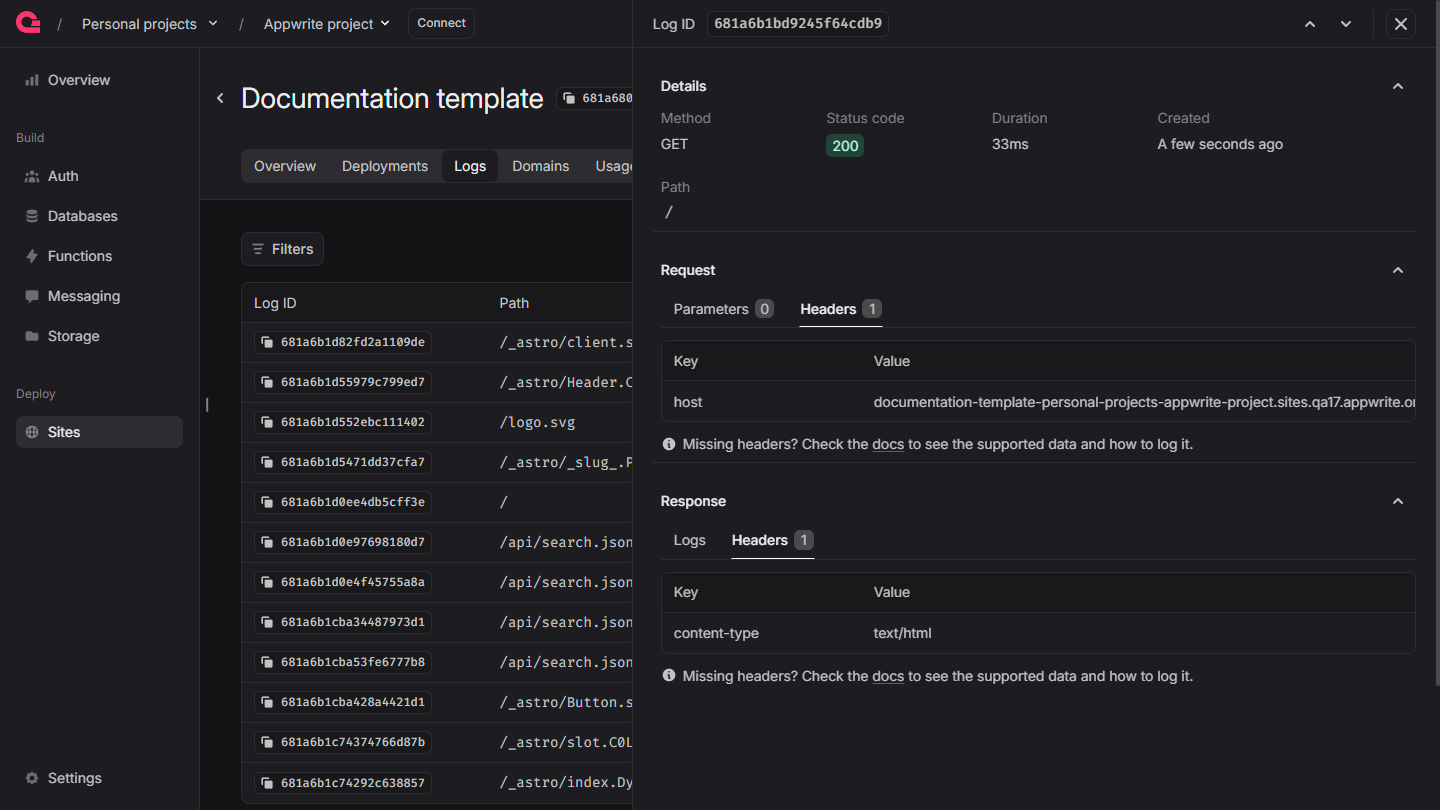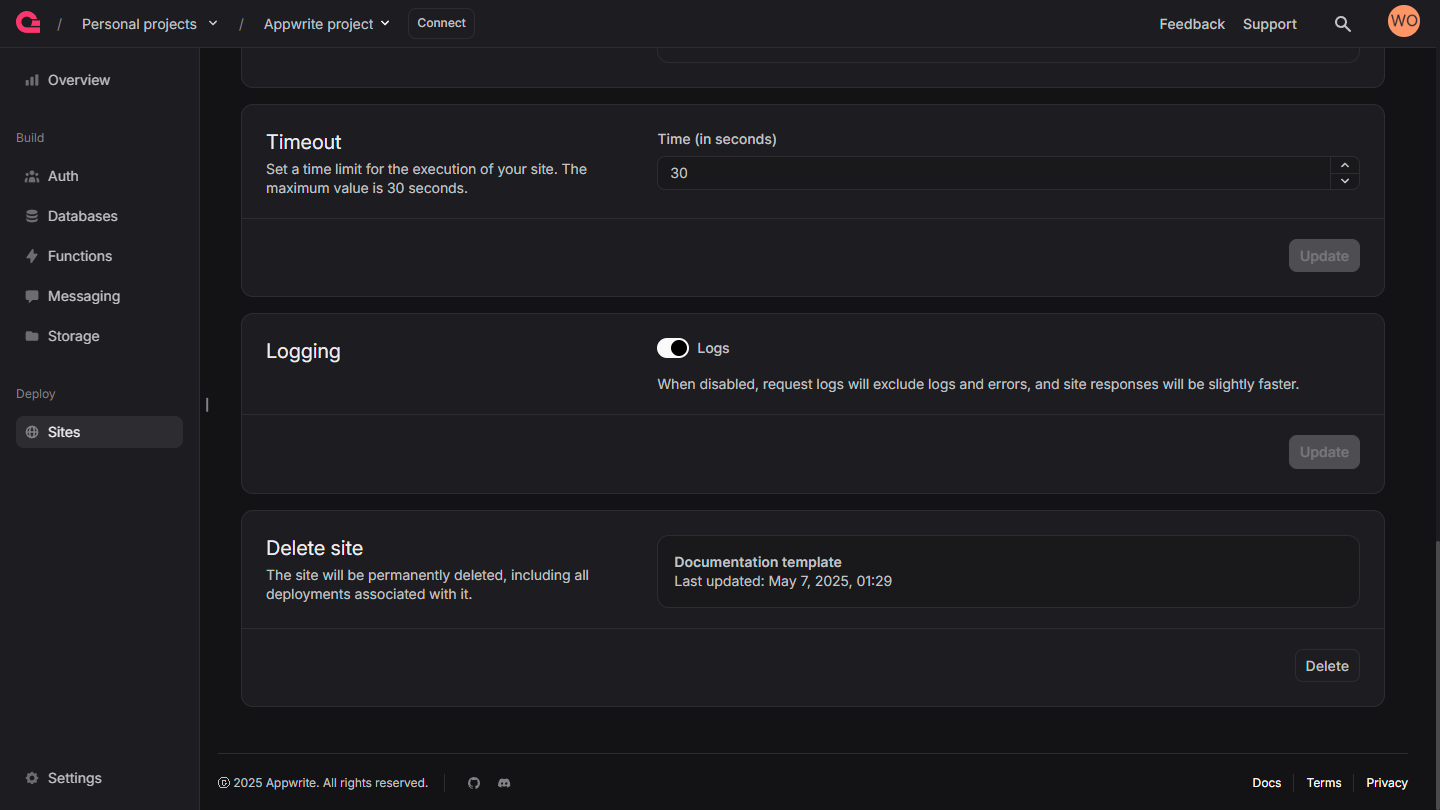Each time a URL path on an Appwrite Site is requested, a log is created. Each log has a unique ID. You can find site logs logged in the Logs tab.
Logs table
In your site's Logs tab, you will see a table of your recent logs. The following information is shown in this table:
| Column | Description |
Log ID | Unique identifier for each log |
Status code | The HTTP status of the request |
Created | Timestamp of when the log was created |
Method | The HTTP method used to create the request |
Path | The URL path the request was made to |
Duration | The time taken for the request |
Log details
When you click on a log, you will be shown a set of log details.


You can find both request and response information, including parameters and headers.
Response logs for SSR apps
If your app uses SSR hosting on Appwrite Sites, you can also observe console.log and console.error outputs in the response logs.
Disable logs
You can optionally disable logging for your site, which will exclude console.log and console.error outputs from the response logs and make site responses slightly faster. Here are the steps to disable logs:
- Navigate to your site on Appwrite Console.
- Under the Settings tab, find the Logging section.
- Disable logs and click on the Update button.


Log retention
Logs are not retained forever in order to be compliant with GDPR and other data privacy standards. Free plan organizations will retain logs for 24 hours, Pro plan organizations will retain logs for 7 days.
If you need longer log retention, you can log to an Appwrite table. Remember to configure proper permissions and implement Appwrite Functions or other scheduled tasks to expire and clean up logs.